Darkest Dungeon review – a captivating RPG for the determined ones
The most demanding game of the recent months is here. Darkest Dungeon is a hardcore RPG that you will love… or hate.
The review is based on the PC version.
- depth of gameplay;
- distinctive visuals with a dark, gothic aura;
- great narrator;
- exceptional difficulty level;
- impressive contents, including New Game+.
- rough mouse controls (not always)
- the randomness sometimes evokes a feeling of unfair treatment;
- the intro could do a better job at explaining gameplay details;
- some small issues at the beginning (after several months of testing? Come on…).
Less than two years – that’s how long it took the developers from Canadian Red Hook Studios to fulfill the promise given on Kickstarter. It was there that they displayed to the public one of the darkest RPGs in recent years – Darkest Dungeon. After that, the game hit Steam Early Access, where it was developed, tested, and constantly improved for several following months, as any Early Access title should be. The developers added new characters, items, and maps, and successively introduced the game’s rules. As keeping us informed reinforced the impression that things are going fine, it’s no wonder that the game’s long-awaited premiere had got the attention of numerous RPG fans. On the other hand, the game’s Early Access period had spawned several critical opinions concerning it; most of them can be boiled down to: too difficult, too random, and anything but fair. We decided to take a look at some of those accusations. Pack your dungeon gear, people, we’re going on an adventure. And make sure to bring some body bags.
A good narrator is what it takes for a dark narrative
Welcome to the hamlet – a place where the crows not only fly backwards but are prone to swooping down on and butchering your whole party. You arrive to this gloomy, ruined community at the outset of your adventure. As it turns out, the town’s continuous existence is constantly threatened by monsters, demons, and numerous other vile creatures. Your task is to gather a party of brave and ready-for-anything (preferably painful death) adventurers to venture deep into contaminated regions of the land and face the devil’s spawn. While I wrote “RPG” in the title of this review, I have to promptly clarify that in the case of Darkest Dungeon it is a very specific breed of RPG: a dungeon crawler featuring numerous roguelike elements. In such games the plot is often of second importance when compared with gameplay mechanics. In Darkest Dungeon it is so and, at the same time, it isn’t. That’s because the story we are being told in the background (delivered by the narrator’s brilliant performance, among other things), while it may not influence the gameplay directly, does a great job of justifying the things we have to do. And it does so in such convincing manner that following the plot becomes a pleasure in its own right. Assuming, such a dark and depressing story can somehow fall into the scope of being pleasant.
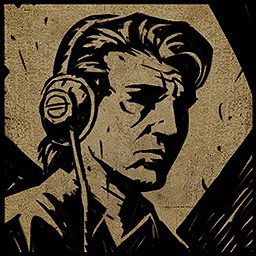
We have two people to thank for the fact that Darkest Dungeon makes such a stunning impression while being very immersive at the same time. Wayne June provides the voice of our longest-standing companion - the narrator. His comments spoken with low, bleak voice get stuck in the memory and fit the game’s thick atmosphere to a T. Especially as they hit the nail on the head when describing the situations we encounter (i.e. „Even the cold stone seems bent on preventing passage” – after we find ourselves before an unmovable obstacle). When it comes to masterful employment of the narrator, Darkest Dungeon can proudly take its place alongside games like Bastion or Transistor. The game’s brilliant visuals are the work of Chris Bourassa, a fan of RPGs, H.P. Lovecraft, and Thief 2, as he describes himself.
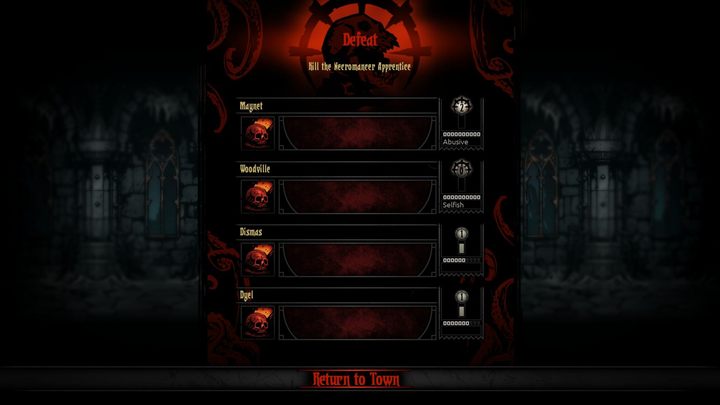
Ok then, Darkest Dungeon has a dark aura – which means? Let’s begin with a big statement – I think that the developers from Red Hook Studios have created one of the most beautiful, and at the same time most disturbing, RPGs in recent years. Its hand-painted graphics sport a meticulous finish, and the sheer number of drawings representing things like various attacks or defense options ensures that the visuals – while being mostly static – remain anything but boring. The aura itself is an intriguing marriage between a gothic novel and lovecraftian horror. We face things like tentacle demons from another dimension, slimy fishpeople or aggressive, poisonous, fungi-like “things”, among numerous other creatures. In contrast to the typical setting employed by H.P. Lovecraft, Darkest Dungeon features a more classic dark fantasy background – inspired by the 16th, maybe the 17th century, and sometimes reminiscent of cloak and dagger movies and novels.
The meat, brimming with guts
At the heart (of darkness) of Darkest Dungeon lies the gameplay itself. It can be described in few short basics. The hamlet is the main location and the essential element of the game; a hub, center of operations for our heroes. That’s where we recruit new characters, heal and buff the mauled ones, and eventually send them all back on another risky venture where their lives and mental health are at stake. Fundamental rule number one: death is permanent – if any of your adventurers happens to bid the cruel world farewell, he’s not coming back. This, distinctively roguelike, feature perfectly harmonizes with the depressing mood that accompanies the story.
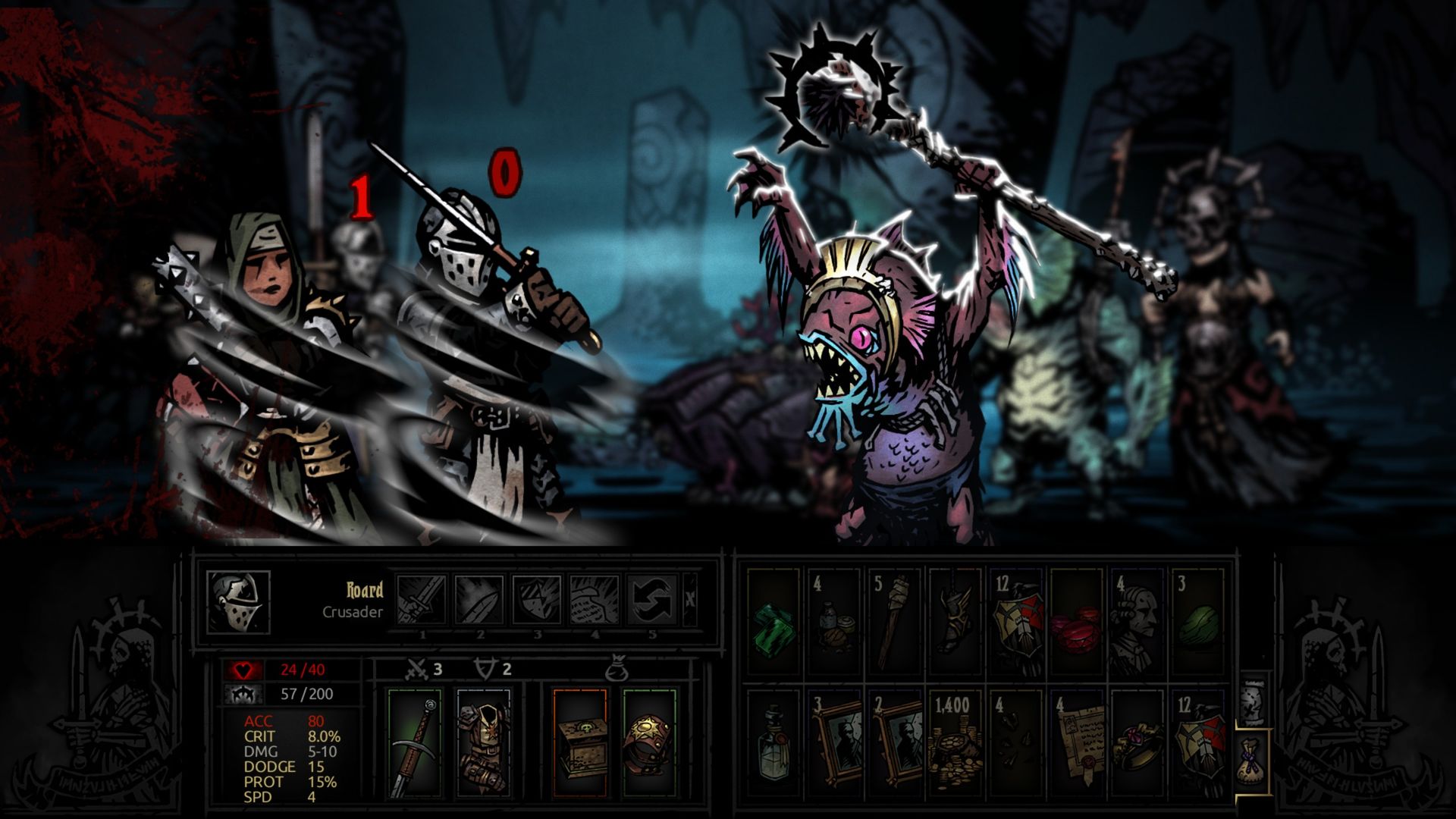
The adventures themselves consist of exploring consecutive gloomy locations – musty ruins or dank coasts. Every expedition requires four adventurers and sufficient amount of supplies to sustain them as they traverse dungeon’s numerous rooms and corridors while trying to complete the mission objective – clean an area from enemies, acquire specific items, or kill a boss. And that’s where the most important love-or-hate factor of Darkest Dungeon comes into play… the difficulty level. The dungeon, as it should be, is swarming with enemies, and the game’s turn-based combat is one of the most engagingly vexing experiences I had in some time. Ugly beasts are one thing trying to stop you, your health, both physical and mental (!), is the other. Each enemy encounter can increase the characters’ stress levels which, after exceeding certain value, may drive our horrified character to madness or lead to developing various afflictions, or even heart attacks. Stress in Darkest Dungeon is not a one-time thing though – after whatever was left of your party comes back to the hamlet, a traumatized adventurer has to be sent to rest and relieve his or her stress in the tavern (cheaper but with possible side-effects) or the abbey (more expensive, also with side-effects), allowing him to regain his or her mental balance. This means, however, that the adventurer cannot take part in expeditions for some time, which – aside from the usual death rate – makes the assembly of a new group of adventurers for another expedition even harder.
Speaking of the game mechanics, I’d like to underline three elements – first: the gameplay is rather simple to understand (unfortunately, the tutorial which, by the way, can also end in defeat and a game over is not perfect in its explanation) but hard to master. Second: the game’s simple combat mechanics (turn-based, one action per turn per character, diversified only by their position in line) were significantly enriched with more than a dozen of distinctive heroes, four of which should constitute our party at any given time. Furthermore, with each subsequent level up the hero can develop not only his weapons and skills, but also quirks - traits that can be positive or negative. There’s a plenty of them and their influence on a character’s effectiveness is significant (i.e. some quirks can help the character in the ruins but work against that character in the cove). Third and last: the most important thing are the various, and numerous, interactions between the heroes – the gameplay in Darkest Dungeon often revolves around building a dream team whose member work as one, supplementing each other and mowing down any opposition. At least until they bite more than the RNG (random numbers generator) lets them chew and die mauled or end up as nervous wrecks. And then we have to look for another good combination of characters.
This ain’t no game for feeble minds
The debate on the difficulty level in video games is an old one. Many point out that the modern games are already much easier than their predecessors. Others retort that it is only so due to better game design. Then there’s the internet, where the answers and remedies for nearly any problem can be found in a flash. Darkest Dungeon is a game that turns the debate on its head – “difficulty” is the game’s middle name and raison d’etre. If you’re easily discouraged or don’t like to fight uphill battles, then steer clear of Darkest Dungeon.
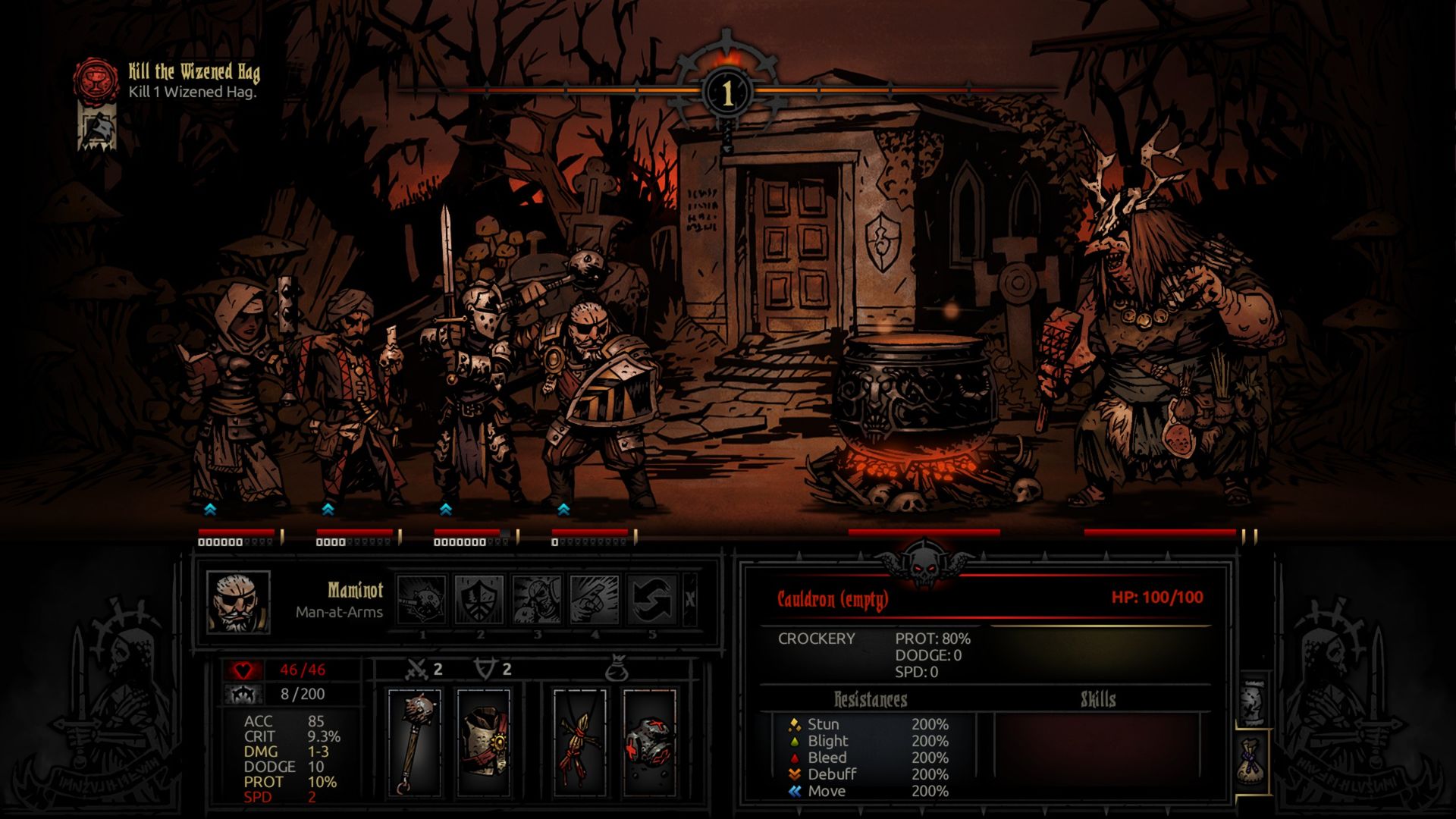
„Lack” is the word that is the root of entertainment in Darkest Dungeon: you constantly lack money to train your heroes, you lack food to keep them fed in the dungeon (and the consequences are dire), or you lack the first move during a battle; the first move that could have saved the party from gruesome, pitiful demise. The feeling that you’re invariably short on something is the thing that defines the gameplay. And it harmonizes perfectly with the game’s bleak audiovisual style that envelops the whole experience in an atmosphere of impending doom. Can’t help but cringe, right?
Justice (un)deserved; a.k.a. you’re dead anyway
Darkest Dungeon is a game where loss is a part of the deal. Not a single loss, mind you, I’m talking hundreds of them – kind of like in the Dark Souls series (I wonder… it must have something to do with the word “dark” in the title). The only difference is that in the game by From Software the player’s life and death are decided by the player’s skill. In Darkest Dungeon it is the random number generator that makes the call – a few unlucky dice rolls and you’re out. All in all, it’s hard to predict the winner at the beginning of a battle – we can demolish the monsters in the span of three rounds or lose a team member and “gain” a fair amount of stress fleeing from the battle. Darkest Dungeon is a game of containing the unavoidable collateral damage. It’s not about avoiding losses anymore, as you will taste many a defeat; it’s about limiting their extent.
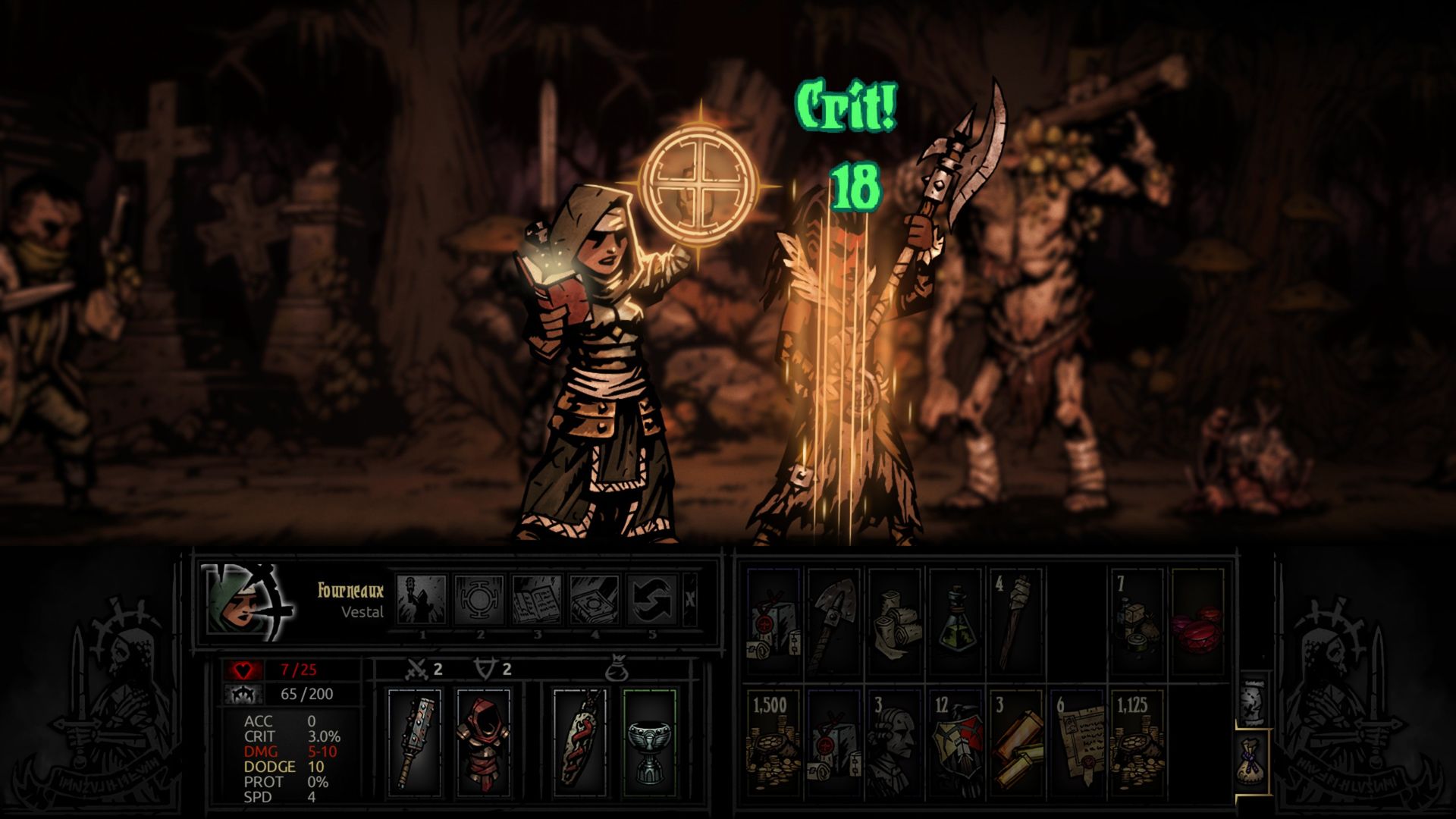
While I’d rather defend this difficult system, I have to admit that its randomness can drive you crazy as well as it does in case of the heroes. There were evenings when, after a series of painful defeats, I would rise from my seat with a feeling of devastating injustice. And while I returned to the game later the same day, the negative impression remained. I think that, at least in some aspects, the creators have crossed the thin line between hard and irritating gameplay, if ever so slightly. Few things had me upset more than a situation when a party wants food seconds after having eaten and rested; food which I cannot provide – and that’s how a smooth and well-organized expedition (at least until now) turns into a messy hike to hell and back. In this particular case, we haven’t got a single trace of indication if, after several “typical” expeditions, our heroes won’t suddenly start chewing down on food like a pack of starved hyenas. You may say, “Hey, it’s part of the game!” – and I agree with you. Manners require, however, that we warn anyone willing to try this for himself: it is not a game for crybabies or players allergic to RNG.
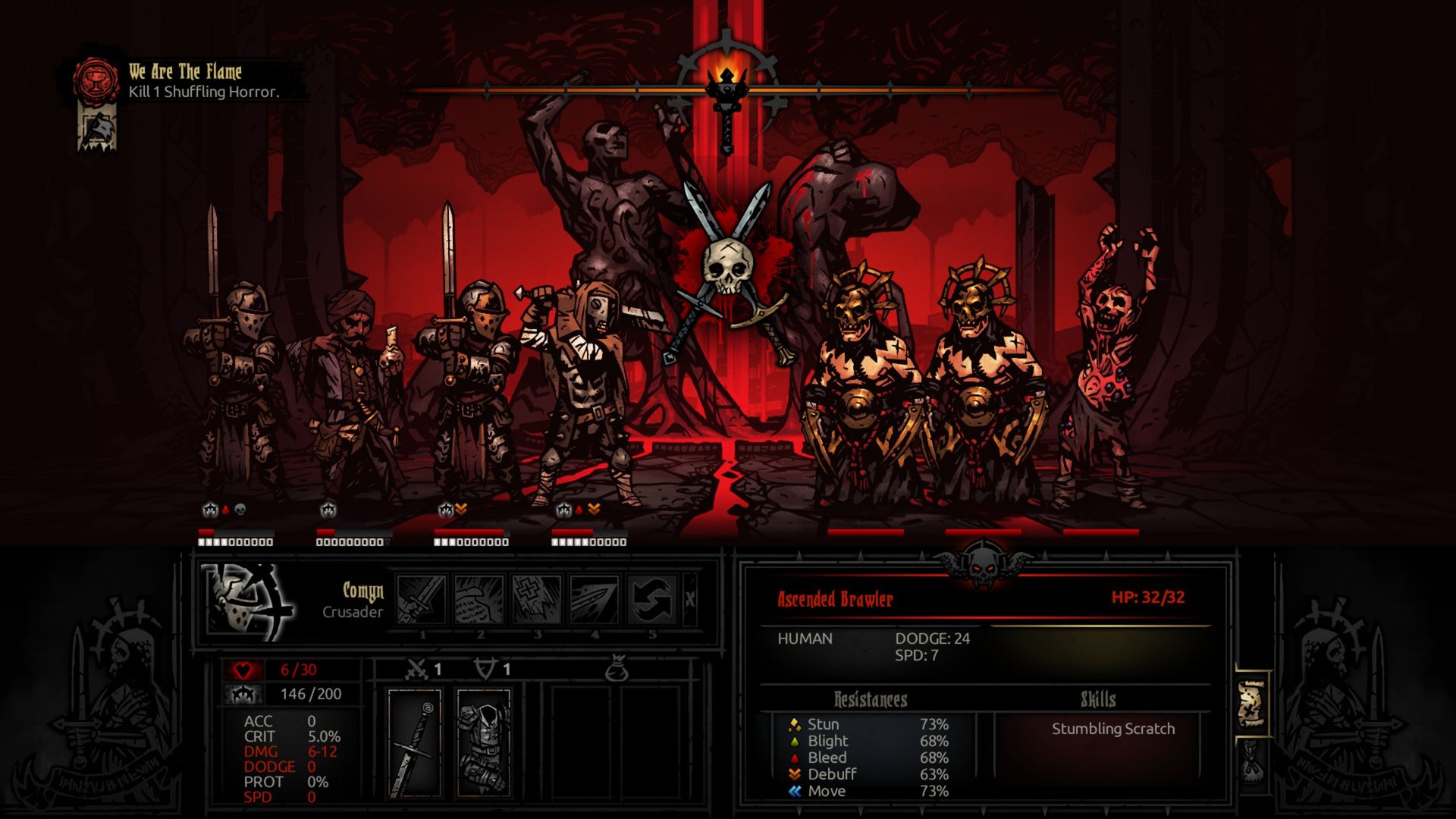
Other things that should be mentioned are the slightly irritating mouse controls – while in the town, you sometimes have to click the character’s portrait several times to see the details - and, finally, there’s the issue of grind. During early access, some people have criticized the game not only for its overwhelming randomness, but also for the grind. I see their point when it comes to the latter, partially at least. Yes, we do repeat the same activities (preparations, expeditions, combat, town development, recruitment, item and gold farming) but the depth provided by the gameplay and its thick aura keep it from being perceivable as a bad thing. Each excursion is a bit different – thanks to the randomness, each can end in a tragedy, compelling us to tighten our grip on the mouse, hoping for that one critical that will pull our party out of fire.
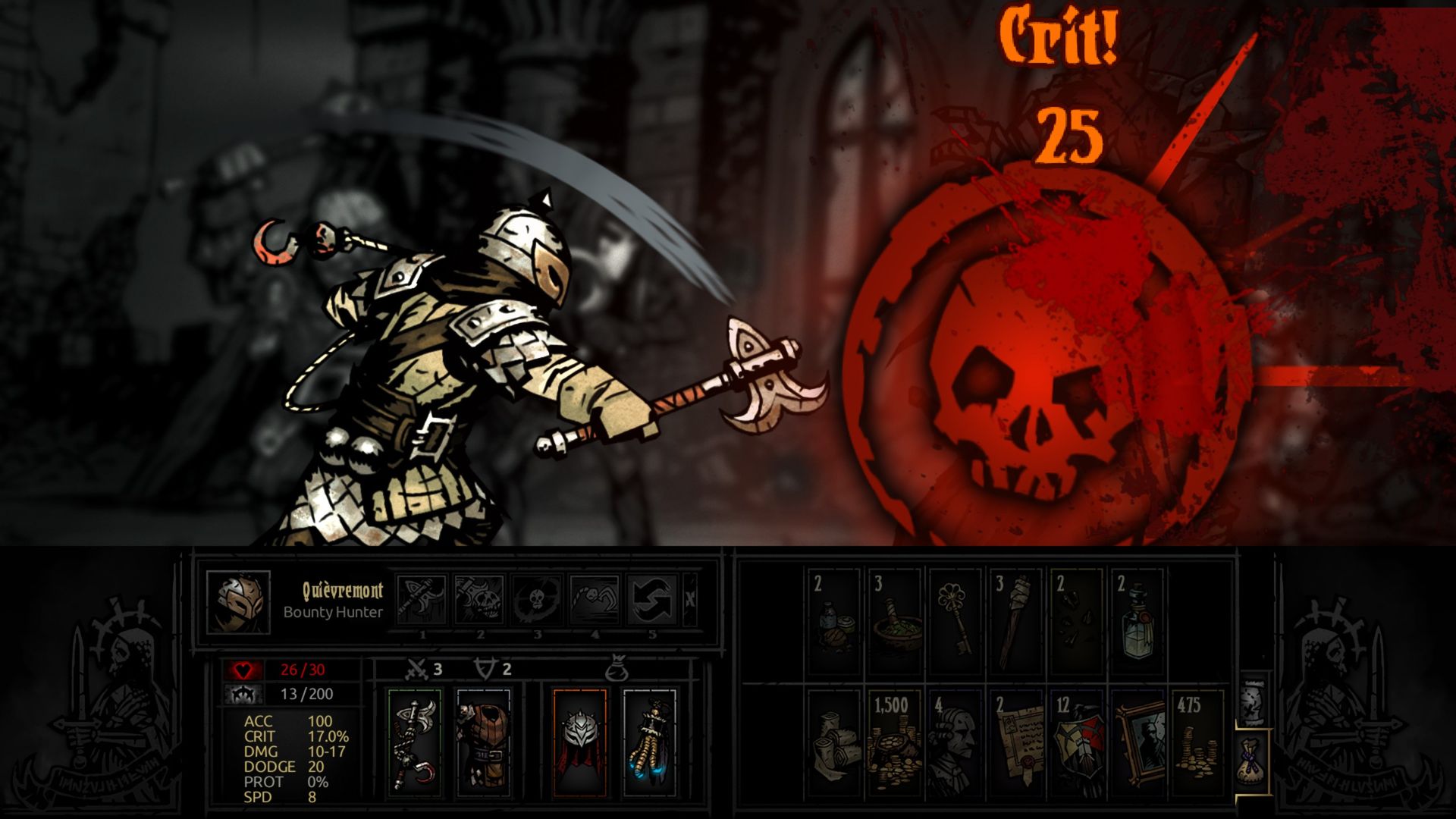
Summary
“This game is too difficult!”, said no hardcore roguelike fan ever. Darkest Dungeon is a solid piece of RPG married with elements of a dungeon crawler and roguelike; it’s just that it’s not for everyone. I, personally, am having brilliant fun with it (and I don’t intend to stop anytime soon), and any temporary irritation I may feel quickly disperses in the face of the urge to revisit the hamlet. Why? Because Darkest Dungeon is a vast game, including not only extra content, the eponymous Darkest Dungeon, but also New Game+ and a throng of very, very hard achievements. I envy the one to max out this discouraging game – in addition to the fun he or she had while playing it, this person is bound to drown in satisfaction for a good while after having done it.

Adam Zechenter
He started in GRYOnline.pl in 2014 as a specialist in mobile and free-to-play games. Then for many years he worked in editorials, and since 2018 he has been serving as the deputy editor-in-chief. Currently, he leads the video department and hosts the GRYOnline.pl podcast. Studied classical philology and history (where he became the head of the Scientific Circle); earlier he created a fan page about Tolkien. Loves action games, RPGs, shooters, and strategies. Loved Baldur's Gate 1 and 2, but today he most often plays on PS5 and prefers a controller over a mouse and keyboard. The most hours he spent (nearly 2000) in a game was in World of Tanks. A book and history enthusiast, sometimes plays squash, also tries not to eat meat.
more
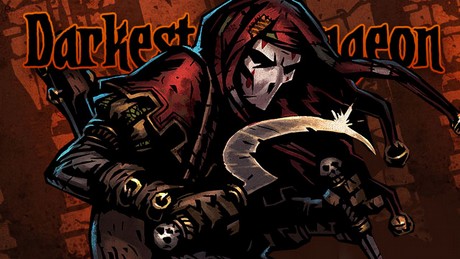
Darkest Dungeon review – a captivating RPG for the determined ones
game review
The most demanding game of the recent months is here. Darkest Dungeon is a hardcore RPG that you will love… or hate.
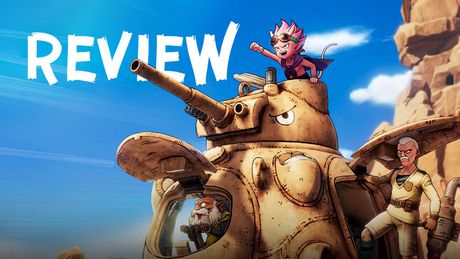
Sand Land Review: Rich Yet Parched
game review
Akira Toriyama’s final works is now a video game that hopes to introduce you to an arid world that needs saving. Does it offer what you want in an open-world game or leave you wanting more? Find out in our review.
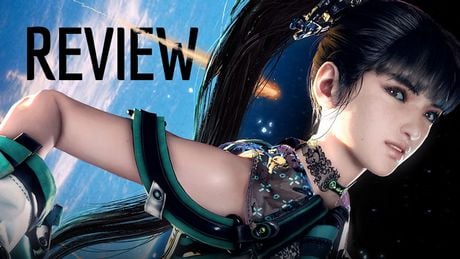
Stellar Blade Review - Action, Existentialism, and Androids
game review
Stellar Blade is an action game released exclusively for PS5. The South Korean studio Shift Up is making its debut in the premium console market, and it's a surprisingly successful start.
